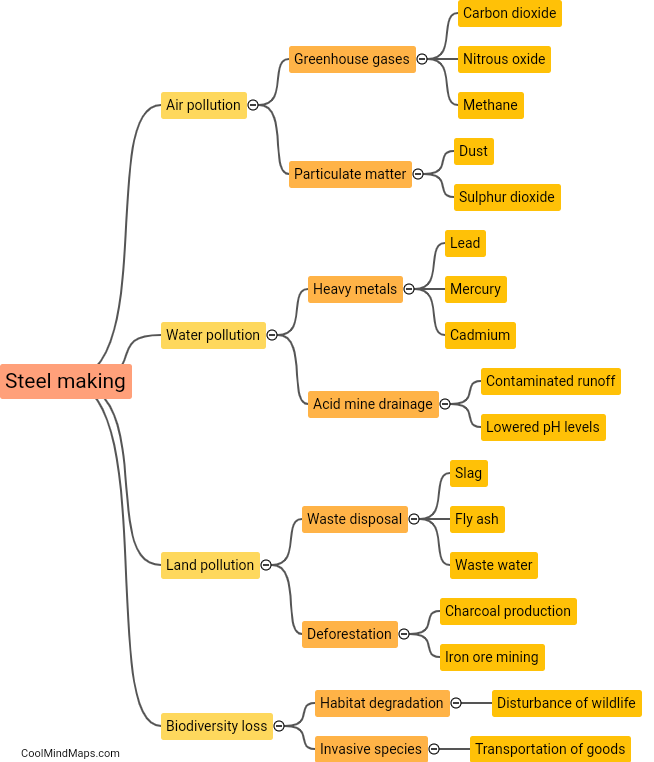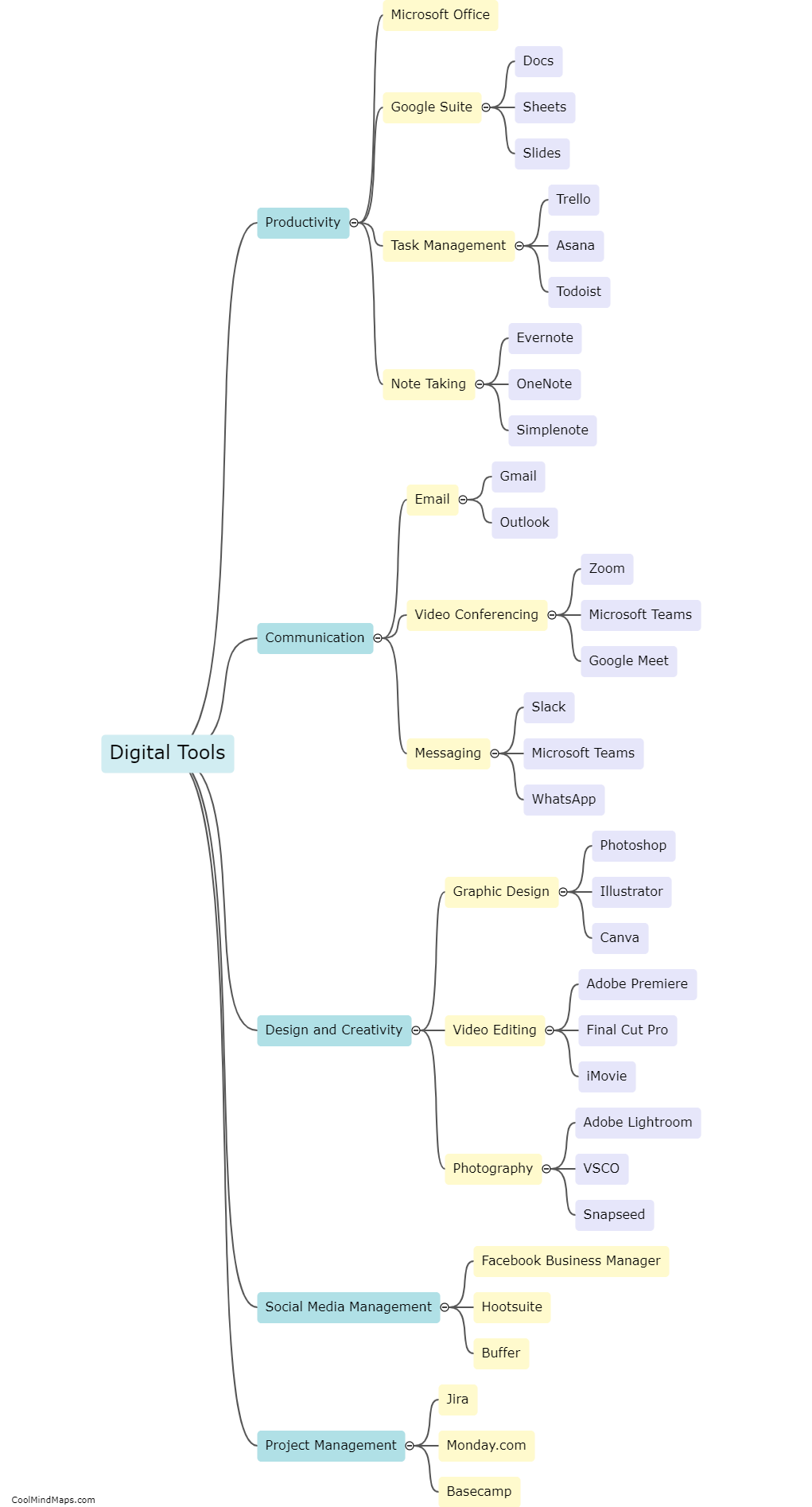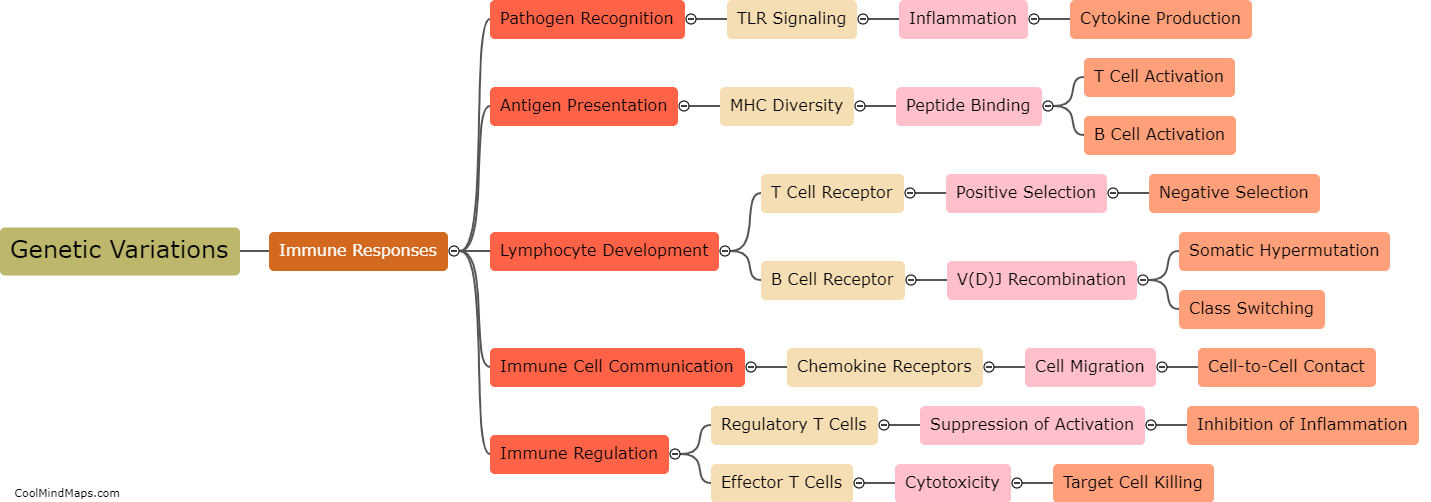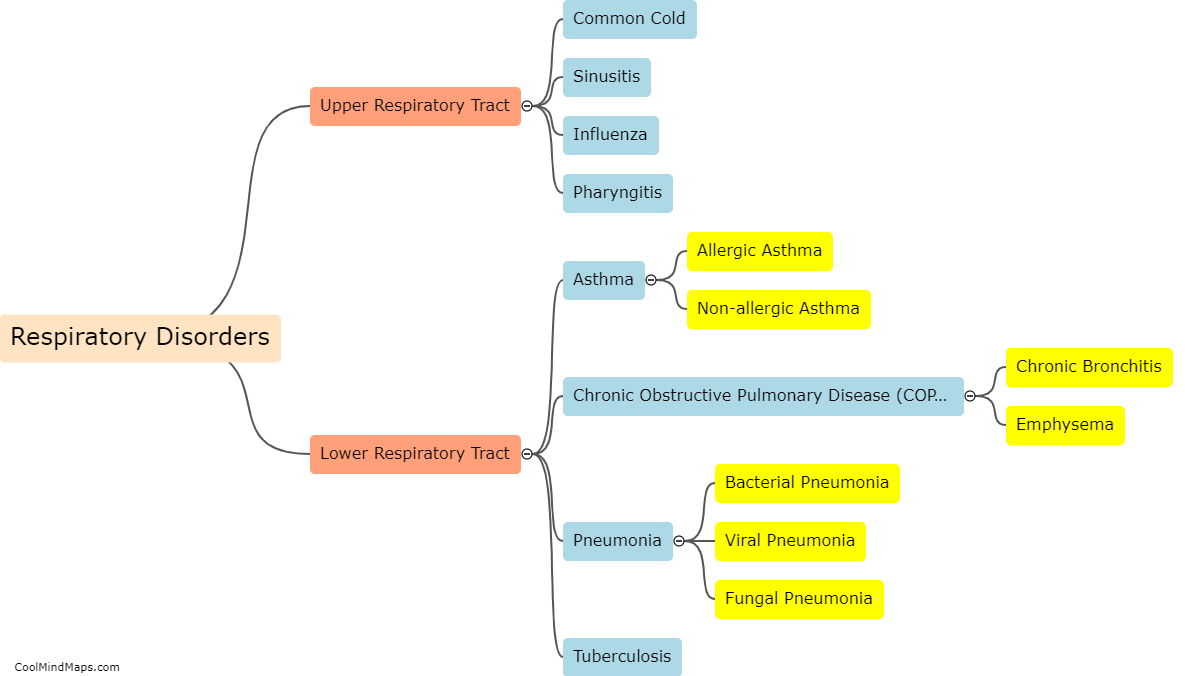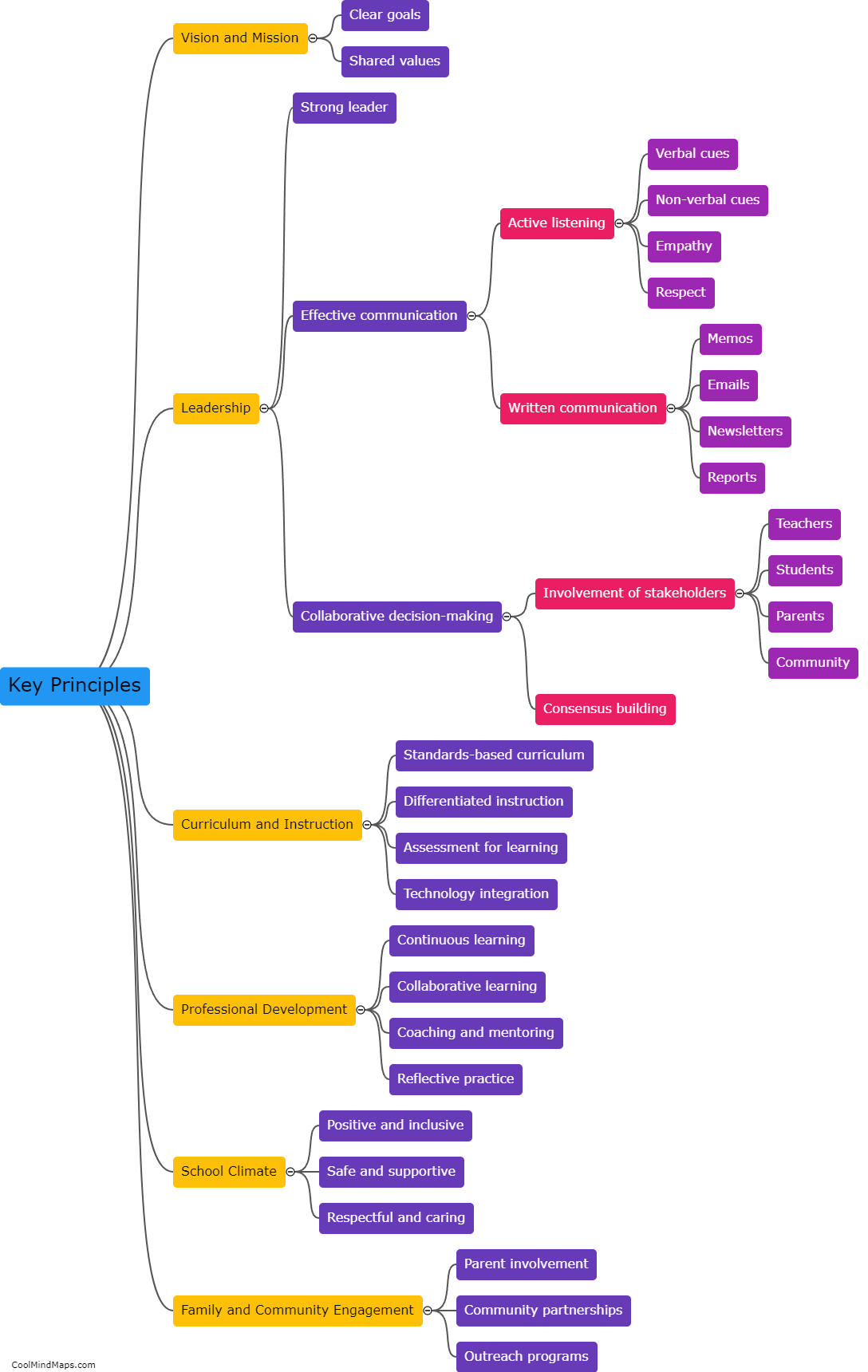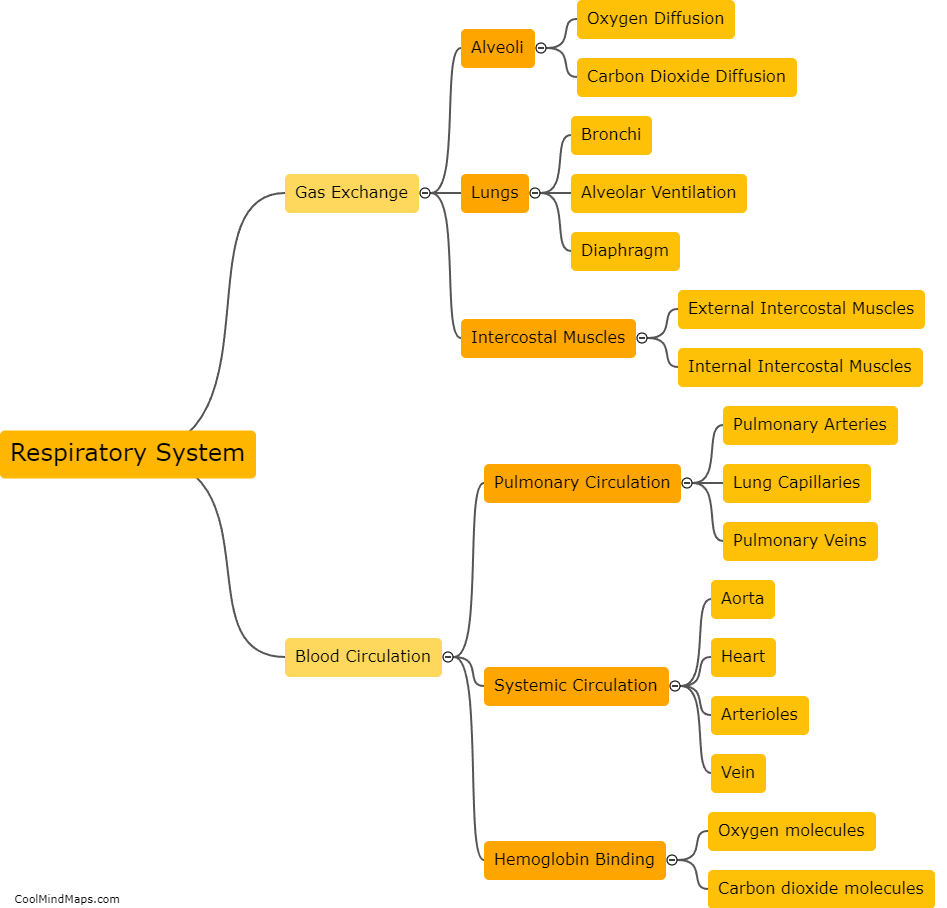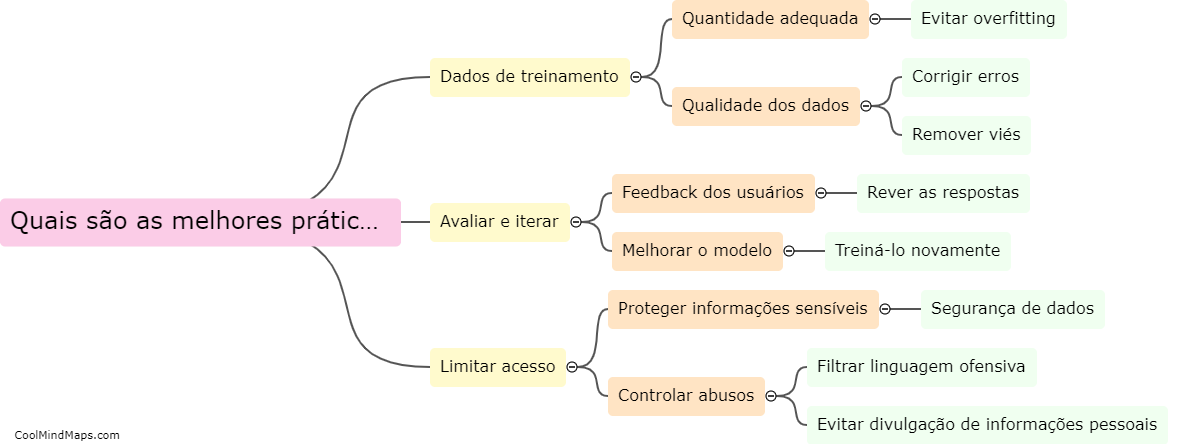What are the main organs of the human respiratory system?
The main organs of the human respiratory system are the lungs, trachea, bronchi, and diaphragm. The lungs are the primary organs responsible for gas exchange, as they contain numerous tiny air sacs called alveoli. The trachea, also known as the windpipe, is a tube that connects the larynx to the bronchi and allows air to enter and exit the lungs. The bronchi further divide into smaller airways known as bronchioles, which then lead to the alveoli. Lastly, the diaphragm, a muscular sheet that separates the chest cavity from the abdominal cavity, plays a crucial role in respiration by contracting and relaxing to control the volume of air flowing in and out of the lungs. Overall, these organs work in coordination to facilitate the intake of oxygen and elimination of carbon dioxide from the body.
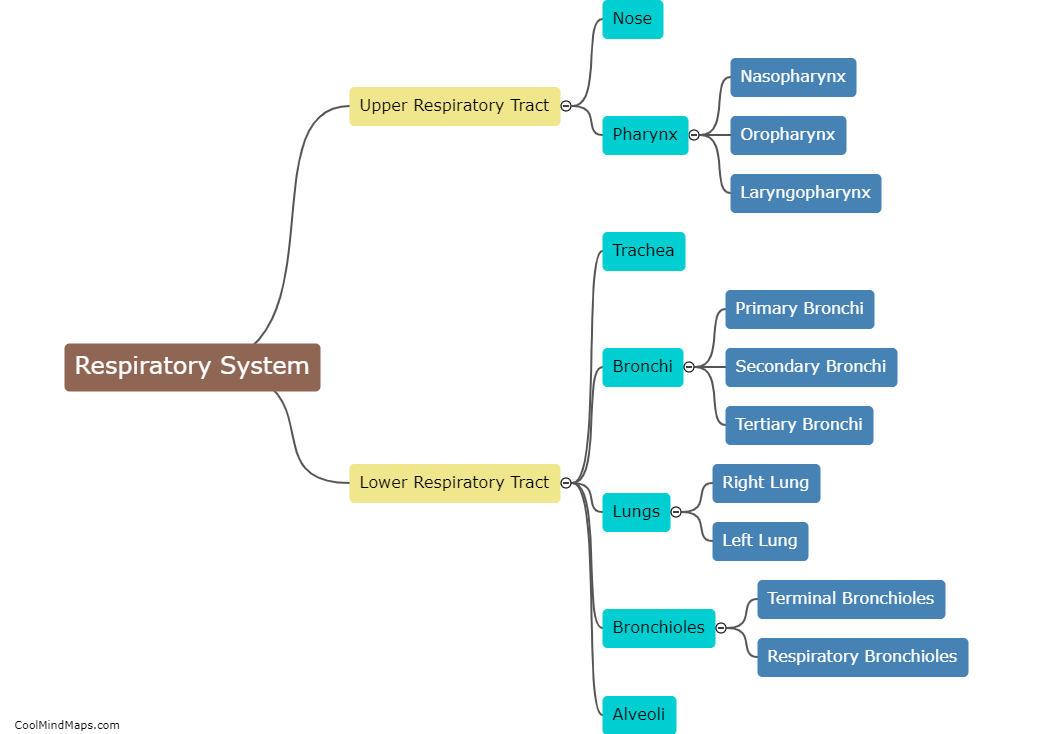
This mind map was published on 22 November 2023 and has been viewed 77 times.


